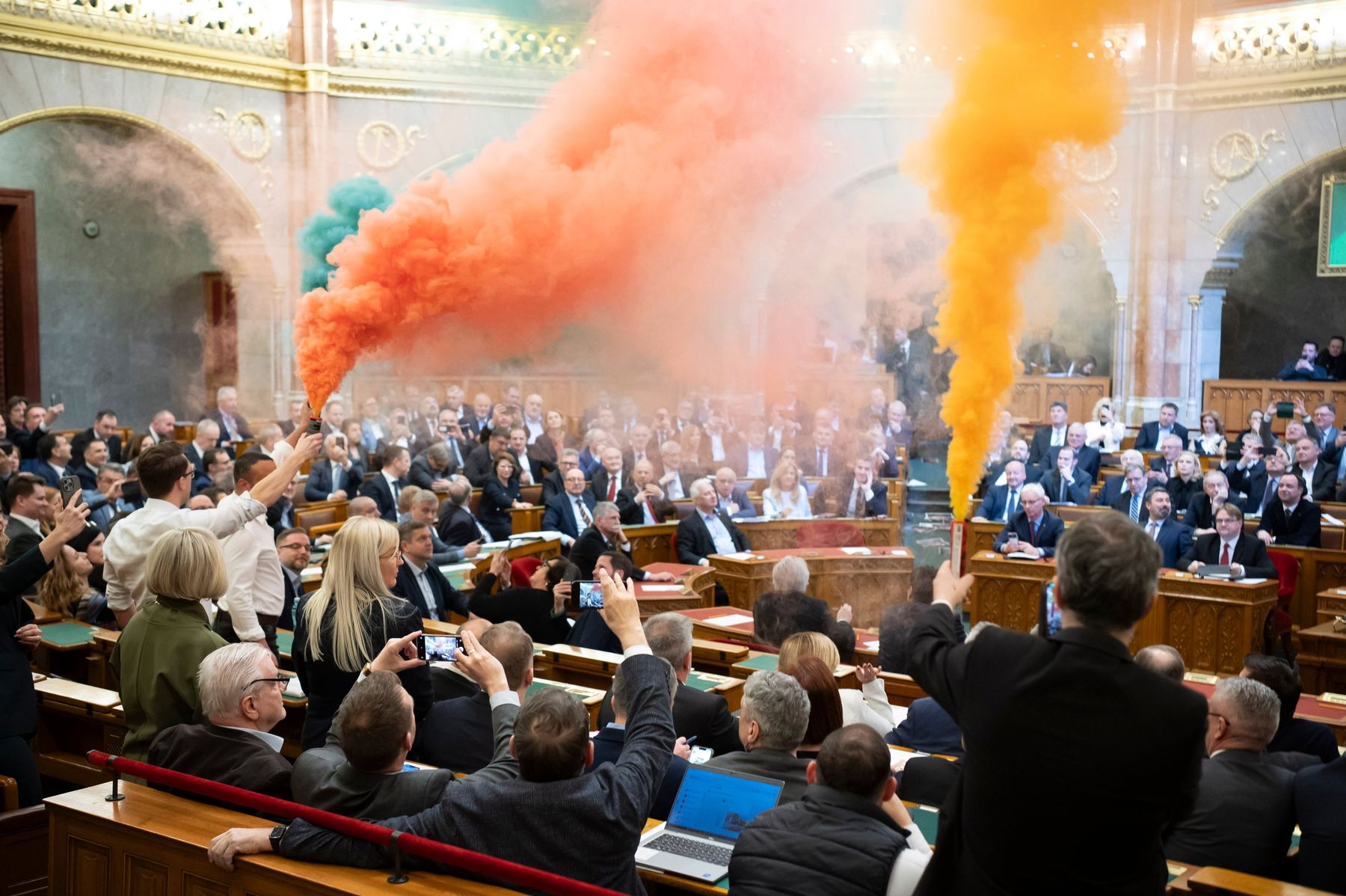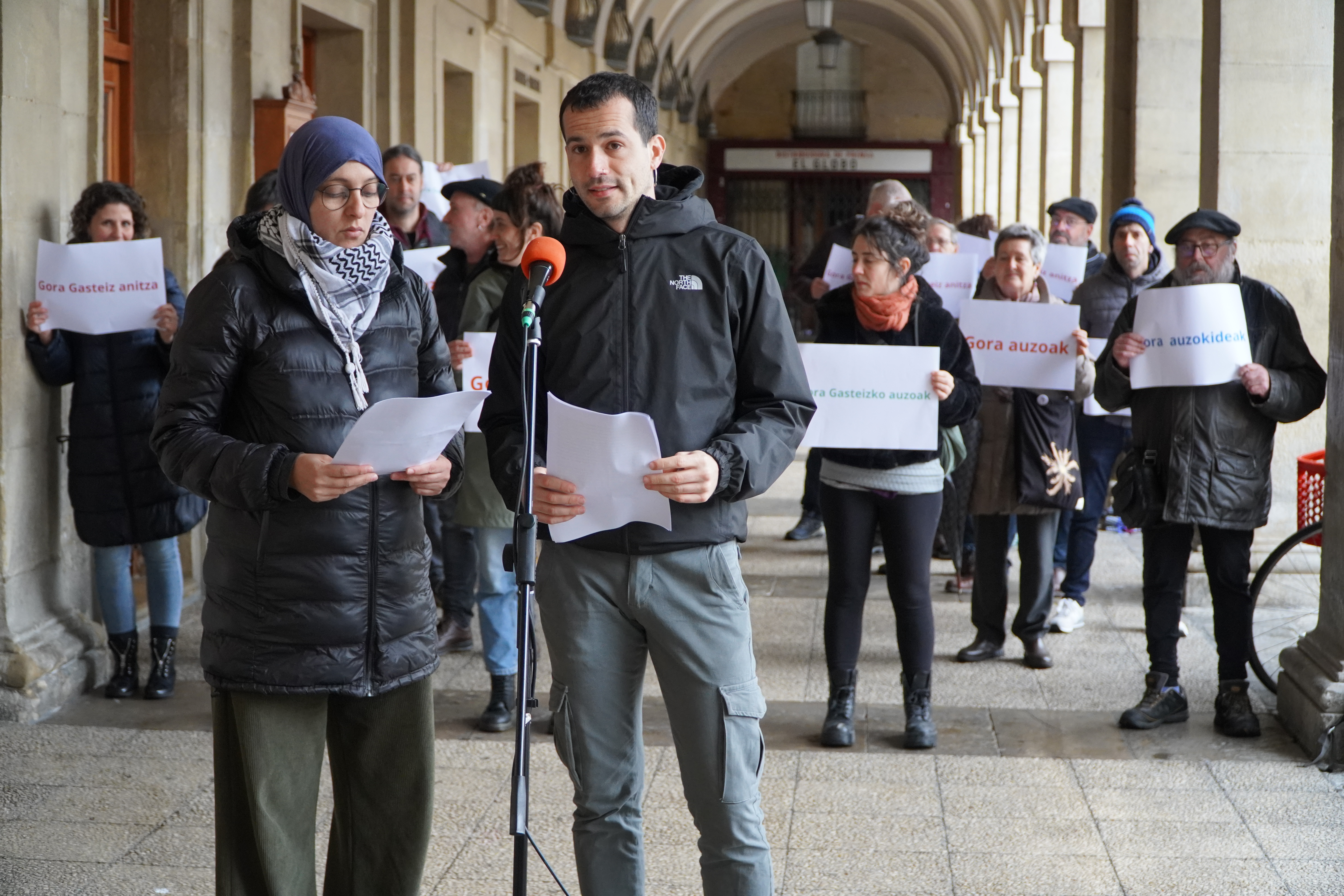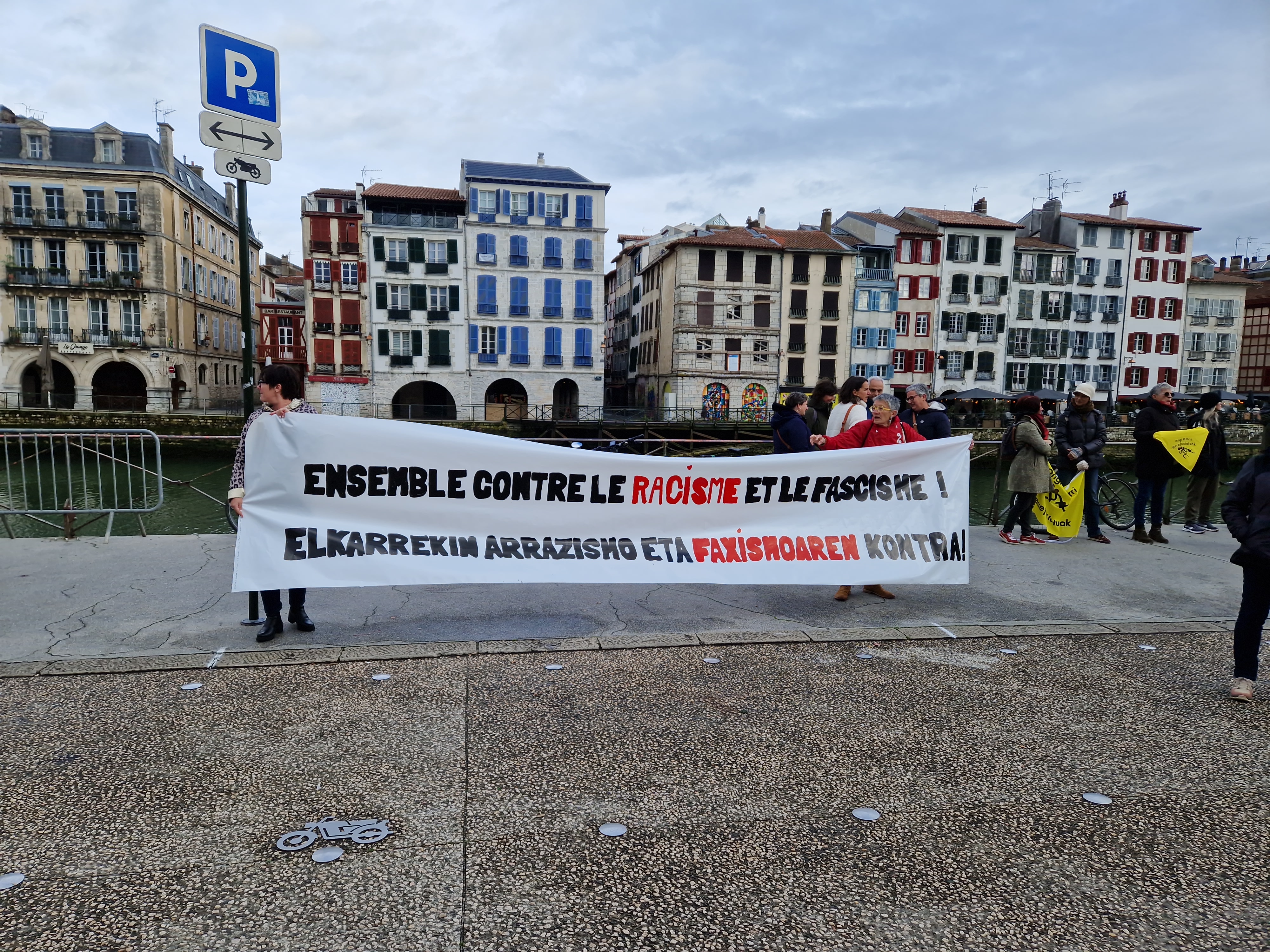"Polish public television fired my client for gay and we won the trial in Brussels"
- Rosa Oyarzabal (Laudio, 1994) works in Brussels as a law firm Covington and has just won the trial of the Polish state, where public television fired a worker for being gay.

You have brought a very important case to the European Court of Justice, will you explain what it was?
My client, J. K., was a public television editor in Poland. This man was hired for seven years. Each contract was one month. I mean, it was a fake autonomous. In December 2017 she posted a video with her husband on the Youtube platform singing All I want for Christmas is you. With that, in a way, they wanted to point out that as a gay couple they celebrated Christmas like anyone else. The government party is on the right and the video came to the public television address. Two days later the contract was suspended.
J. K. decided to go to court with lawyers and reported in Warsaw that this was discrimination based on sexual orientation. He sued lawyers who work both labor and labor rights. The Court noted a contradiction between Polish legislation and the European standard. In fact, local law makes it possible to argue about sexual orientation to settle a contract if it's with a company. As an autonomous company, it was possible. This could, however, be in contradiction with European law, and Polish judges referred the matter to the European Court of Justice.
Was it the responsibility of the European court to clarify it?
Yes, it is your job to resolve if the law supports this case of exclusion. At the time, as Polish lawyers were not experts in European affairs, they contacted our firm, Covington. Moreover, I had the case. We believe that European law protects the rights of all workers in accessing and maintaining a job, even if it is autonomous. Their sexual orientation is not a reason to deny these rights, as it has nothing to do with professional skills.
What was the procedure?
In November 2021 we sent a letter and in April 2022 we received the notification, as the oral trial was to be held. Two positions collided at the trial. On the one hand, Poland as a state and representative of public television. Their arguments were that Poland allows the self-employed to have contracts, even if they were gay, so the rules were respected. We, however, argued that European regulation focuses on combating exclusion. In addition, the Polish State stated that the law protects workers, but that an autonomous company is a company and that, therefore, protection against redundancies is not in its favour. It was very clear to us that European laws also assume the rights of the self-employed.
“When the TV address saw that my client recorded a video broke the contract with her husband”
What was the ruling?
The judges have clearly stated that European law must be interpreted as broadly as possible. In other words, freedom of recruitment does not allow someone to be hired because they are gay, and an autonomous person cannot be dismissed for that reason.
What will happen now?
The case will return to the Polish Court, which must establish that J. K. received discriminatory treatment and will have to compensate him. It is important that for the first time the European court has recognised that an autonomous person is protected. Because on previous occasions there have always been false self-employed who have received this guarantee. In this respect, my colleagues in Covington have told me that they believed that competition, that of protecting the self-employed, was a matter for the states of the European Union. In the Spanish state or in Italy the protection was clear, but in Bulgaria, Poland or Hungary it was not. This judgment has created case law and all states must change the criterion.
In addition, it should be noted that the law won affects not only sexual orientation, but also religious minorities, persons with disabilities or the self-employed (over 45 years of age) who wish to hire or dismiss for reasons of age.
Will the judgment involve legal changes?
Not necessarily. That would be ideal, but states can misdevelop European regulations and create inappropriate laws, but if they do not change them, citizens can go to court. In this case, European jurisprudence comes into force to protect their rights.
You've had the opportunity to bring this case because Covington has a special philosophy, right?
Yeah, that's it. These cases are called pro bono. That means we don't charge for doing this work. This is not the first time I have done so. I started four and a half years ago in Covington and in the European court we have litigated for people with mental or psychosocial problems, for the LGBT community or in the area of abortion and reproductive health. As a result of last year’s ruling in the United States, there are many cases related to this last issue.
We work for free for the customer, but Covington's philosophy is the same care as the payer. We have to guarantee the same level of quality and that is why we charge our work equally to the firm and the cases are the same.
As a law firm, we have a social function and we want to do so. We do not go into politics, but there are social issues and we want to support them.
What importance does it attach to the case personally?
It was a case that personally affected me a lot. Professionally, it's one of the milestones of my career. A few years ago I started working and I opened the oral trial, won and took it from start to finish. It's an exceptional option, especially when you work with corporations. I also think it happened very soon in my career. I'm very lucky and I don't think it happens again.
And how did he get to Covington?
I have always liked European law and wanted to work outside the Spanish state. I did the end-of-career internships in Covington in Brussels and came back after doing the master's degree, and I've finished four and a half years.
I hope it stays here. I am very pleased because we are working on European administrative law: pharmacies, the environment, cosmetics, food, renewable energies … All this is regulated by Europe and the states have little room to decide.
Segurtasun falta dagoen irudipena handitu dela azaldu du Eustaten azken txostenak. Gurean, Trapagaranen, Segurtasuna orain, delinkuenteen aurka manifestaziora deitu dute herritar batzuek.
Bi izan dira sentsazio hori zabaltzeko arrazoiak. Batetik, udalak Udaltzaingoaren... [+]
Hainbat kolektibo daude Gasteiz Anitzaren atzean. Egoera larrien aurrean "soilik poliziaren esku hartze gehiago" eskatzen duen eta "eskubideen urraketei entzungor" egiten dion ereduaren aurrean, beste praktika eredu bat egiteko saiakera dela adierazi dute... [+]
Hirurehun bat pertsona hurbildu ziren jende katea osatzeko Marengo eta Pannecau zubien artean.
Trintxerpen hasi eta Donostian bukatu da hainbat kolektibok deitutako XXVIII. Arrazakeriaren Kontrako Martxa.
Hurrengo ariketa egin ezazu zure lantokian, euskaltegian edo gimnasioan:
Altxa eskua Minneapoliseko George Floyd nor den dakizuenok.
Altxa eskua Madrilgo Mame Mbaye nor den dakizuenok.
Altxa eskua Barakaldoko X nor den dakizuenok.
Mame Mbaye manteroa duela zazpi urte... [+]
Lau turistak eraso zieten jatorri pakistandarreko hainbat langileri, Lekeitioko Gazte Asanbladak salatu duenez.
1960ko martxoaren 21ean, Hegoafrikako Poliziak 69 lagun hil zituen apartheidaren kontrako manifestazio baketsu batean. Ordutik, egun hori Arrazakeriaren eta Xenofobiaren Nazioarteko eguna ospatzen da, aldarrikapenez beteta. SOS Arrazakeriak urtero gai ezberdin bat lantzeko... [+]





















